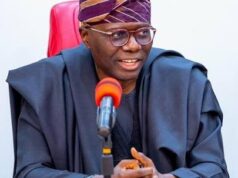
By Ajibola Olarinoye
A report from BuyLetLive reveals that inflation significantly transformed Nigeria’s housing market in 2024.
The report notes, “Inflation has undeniably reshaped Nigeria’s housing landscape in 2024, leading to affordability issues and changing demand patterns. By focusing on affordable housing solutions, encouraging local production of building materials, and adopting cost-effective technologies, Nigeria can lessen the impact of inflation on its real estate sector in 2025. A proactive strategy to tackle the effects of inflation on housing demand will be crucial for developing a more inclusive, sustainable, and resilient housing market in the future.”
“While inflation has posed considerable challenges, it has also opened doors for innovation within Nigeria’s housing sector. Developers are increasingly utilizing cost-saving technologies, such as modular construction and prefabricated materials, which can significantly lower construction costs.”
“Although inflation has posed a considerable challenge, it has also opened doors for innovation in Nigeria’s housing market. Developers are increasingly turning to cost-effective technologies like modular construction and prefabricated materials. These approaches can shorten construction timelines and lower expenses while upholding quality standards.
In addition, renewable energy solutions, such as solar panels, are becoming more popular as a means to lower utility costs for both tenants and homeowners.
Emerging trends like energy-efficient building designs and smart home technology are also attracting buyers and renters who are looking for long-term savings on energy bills.
According to the report, the real estate sector plays a vital role in Nigeria’s economy. However, the inflationary climate has threatened to hinder activity within the sector, leading to a decrease in housing demand and a slowdown in some construction projects.
The report further noted that inflation has become a key factor influencing both economic and social realities.”
‘In 2024, the ongoing rise in inflation underscored the intricate interplay of various economic factors, such as fiscal and monetary policies, exchange rates, and international trade dynamics. One of the most pressing economic challenges the country faced that year was currency fluctuations. The naira experienced a significant decline of 24.3 percent against the US dollar, dropping from an exchange rate of N1,413 to $1 at the beginning of the year to N1,757 to $1 by the end of November. This marked the highest exchange rate in over twenty years, as reported by the National Bureau of Statistics,” he said.











